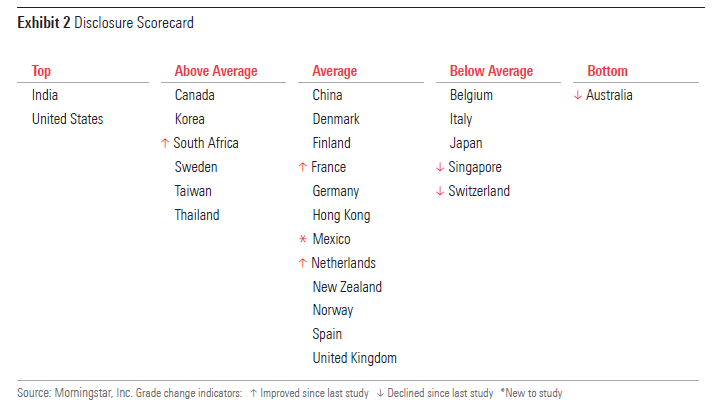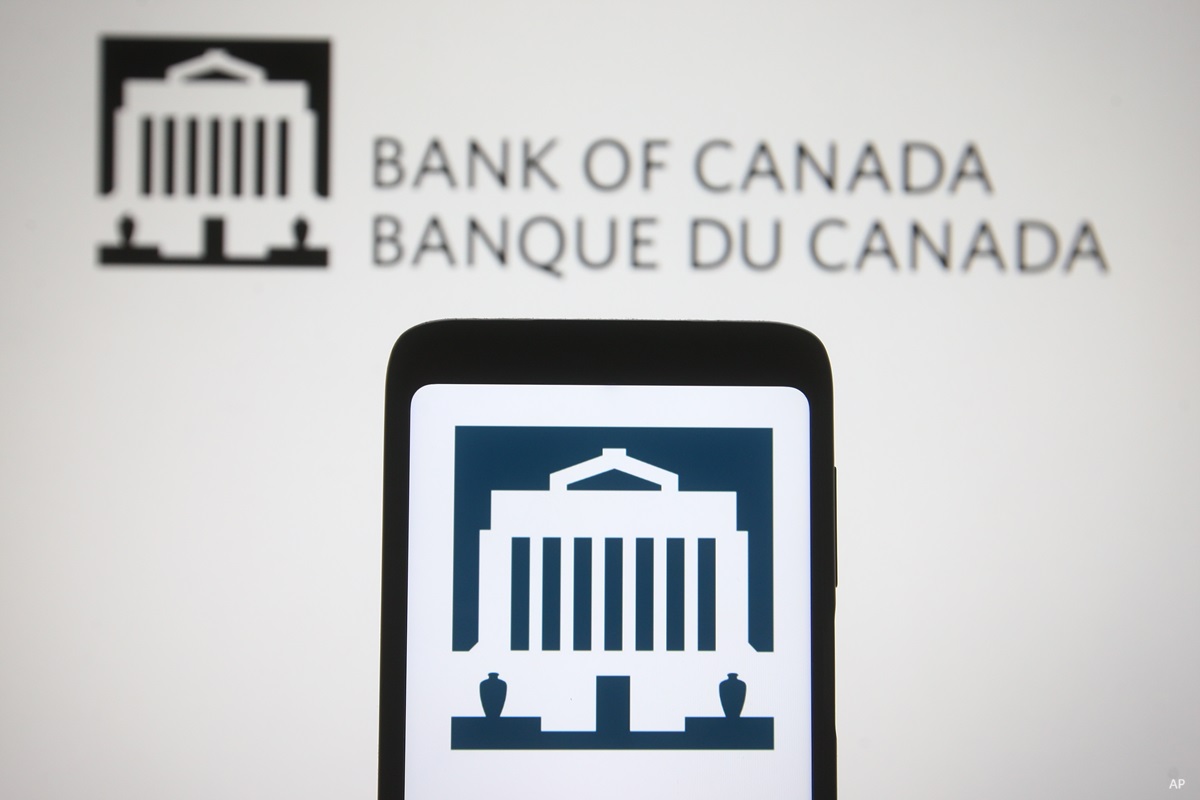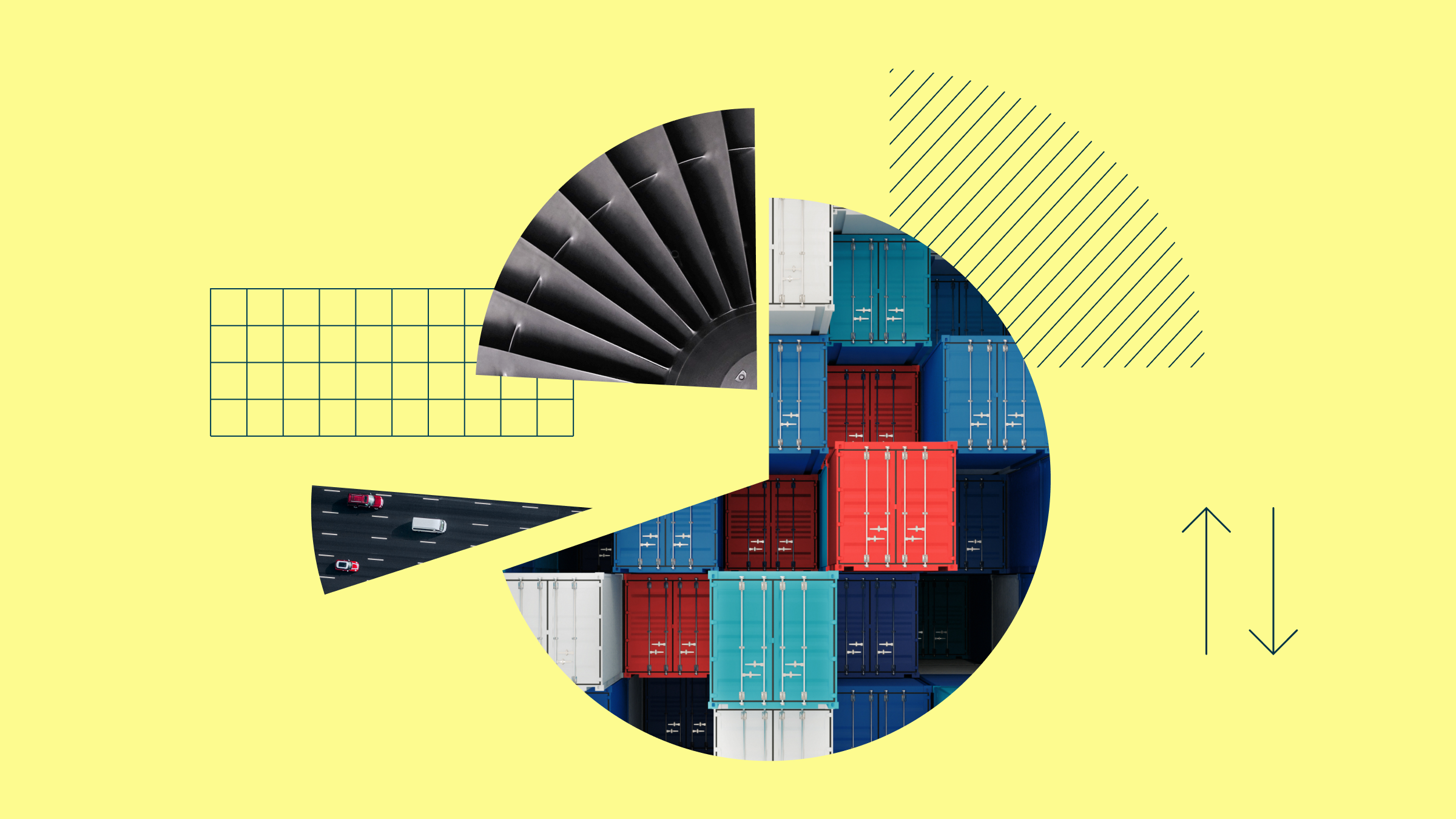
Morningstar’s latest Global Investor Experience (GIE) Study found that Canadian investors continue to experience a disclosure environment that ranks ‘Above Average’.
Earlier today, Morningstar published the third and final chapter of its sixth biennial GIE report. This chapter covers Disclosure, grading the experiences of mutual fund investors in 26 markets on a five-tier scale: Top, Above Average, Average, Below Average, and Bottom. Previous chapters were on Fees and Expenses and Regulation and Taxation.
From Morningstar's perspective, the best regulatory approach is rooted in greater transparency. “In the long run, mutual fund industry stakeholders that fight transparency are likely to generate outcomes that are bad for investors and bad for the industry itself. Hence, we are pleased with the incremental improvements most markets have made in improving disclosure practices since our previous study,” the authors note.
First, here’s a look at how countries scored:
The US and India earned Top grades, with six markets—Canada, Korea, Taiwan, Thailand, South Africa, and Sweden—getting Above Average grades. While most markets occupy roughly similar positions as in the 2017 survey, France and the Netherlands took jumps upward, benefiting from incremental improvements across EU markets, and South Africa’s grade also improved.
As in previous years, Australia landed with the lowest awarded grade. In this edition of the study, Australia stands alone as having clearly the feeblest disclosure regime among the 26 markets in this study. As an otherwise sophisticated market, it is remarkable that Australia remains the only market with no implemented portfolio holdings disclosure regime.
Global Key Findings
The report finds that most markets around the world have incrementally improved the environment for mutual fund investors through better disclosure practices. Ideally, complete portfolio holdings are publicly available from a central website (such as an industry association or a regulator). Pleasingly, nine markets in this study have this in place.
Worldwide, the authors note, much environmental, social, and governance regulation is in the pipeline that should provide more-standardised disclosure to inform investors' understanding and comparison of products. “This should help prevent greenwashing—or using ESG claims in fund marketing without ESG principles truly guiding investment decisions—from being a significant issue for investors. In Europe, which is the region with the most ESG investment regulatory innovation, Sweden is the leader in ESG disclosures, given its granular regulatory requirements. Outside of Europe, the list of green funds disclosed on the Hong Kong regulator website is an example of a simple, yet immediate impact initiative that helps investors more easily identify funds that meet stated ESG requirements,” the report notes.
Oh Canada
The authors note that Canada earns a disclosure grade of Above Average owing to its focus on detail, language, and illustrations that are useful to end investors. In Canada, funds are required to publish a section on management's discussion of fund performance, and specific requirements make it useful for investors. Offering documents in Canada include portfolio manager names and a monetary illustration of fund fees.
“As one notable shortcoming, Canada does not require disclosure of full portfolio holdings,” the report notes.
Morningstar launched the Global Investor Experience study (GIE) in 2009 to encourage a dialogue about global best practices for mutual funds from the perspective of fund shareholders.




















